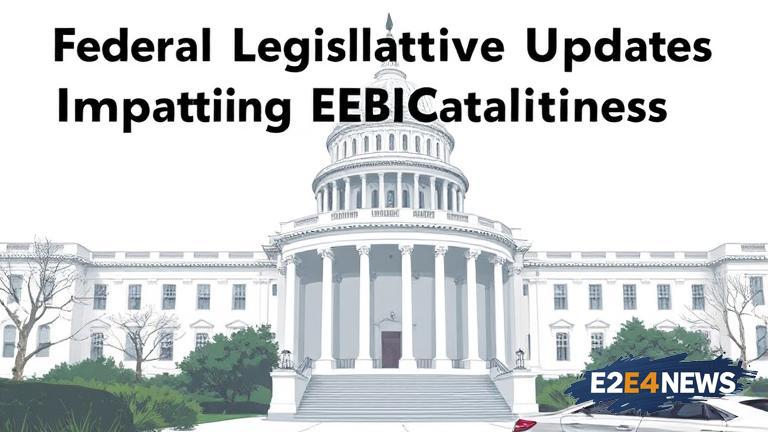The Eastern Band of Cherokee Indians (EBCI) citizens have a vested interest in staying up-to-date on federal legislative updates that impact their community. Recently, several bills and policies have been introduced or passed, affecting various aspects of EBCI life. The Indian Health Care Improvement Act, for instance, aims to improve healthcare services for Native American communities, including the EBCI. This legislation seeks to address the long-standing healthcare disparities faced by Native Americans, providing increased funding for healthcare facilities and services. Another significant bill is the Tribal Law and Order Act, which focuses on enhancing law enforcement and public safety in Indian Country. This act enables tribes to exercise greater control over law enforcement within their territories, promoting safer communities. Furthermore, the EBCI may benefit from the recently introduced Native American Housing Assistance and Self-Determination Act, designed to provide affordable housing options and support self-determination efforts. The Not Invisible Act is another crucial piece of legislation, aimed at addressing the crisis of missing and murdered Indigenous women. This act establishes a national commission to investigate and develop strategies to combat this epidemic. In addition to these bills, the federal government has also launched initiatives to support Native American education, economic development, and environmental conservation. The EBCI can expect to see increased funding for programs that promote cultural preservation, language revitalization, and historical preservation. The federal government has also acknowledged the importance of tribal sovereignty, recognizing the EBCI’s right to self-governance and decision-making. However, despite these positive developments, challenges persist, including inadequate funding, bureaucratic hurdles, and the need for greater representation in federal decision-making processes. EBCI citizens must remain vigilant and engaged in the legislative process to ensure their voices are heard and their interests are represented. The EBCI government and its citizens must work together to advocate for policies that benefit their community, fostering a stronger, more resilient nation. By staying informed and actively participating in the democratic process, EBCI citizens can help shape the future of their community and ensure a brighter tomorrow. The federal legislative updates have significant implications for the EBCI, and it is essential to monitor these developments closely. As the legislative landscape continues to evolve, the EBCI must adapt and respond to emerging opportunities and challenges. This requires a deep understanding of the complex issues at play and a commitment to ongoing advocacy and engagement. By working together and leveraging their collective strength, the EBCI can overcome obstacles and achieve their goals, ultimately enhancing the well-being and prosperity of their citizens. The path forward will require perseverance, dedication, and a unwavering commitment to the values and principles that have guided the EBCI for generations. As the EBCI navigates the complexities of federal legislation, they must remain true to their heritage and cultural identity, ensuring that their unique perspective and experiences are reflected in the policies that affect their lives. The EBCI’s story is one of resilience and determination, and their continued advocacy and engagement will be crucial in shaping the future of their community. In conclusion, the federal legislative updates have far-reaching implications for the EBCI, and it is essential to stay informed and engaged in the democratic process. By doing so, EBCI citizens can help create a brighter future for themselves and their community, one that is built on the principles of sovereignty, self-determination, and cultural preservation.





